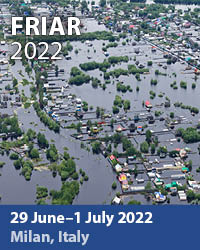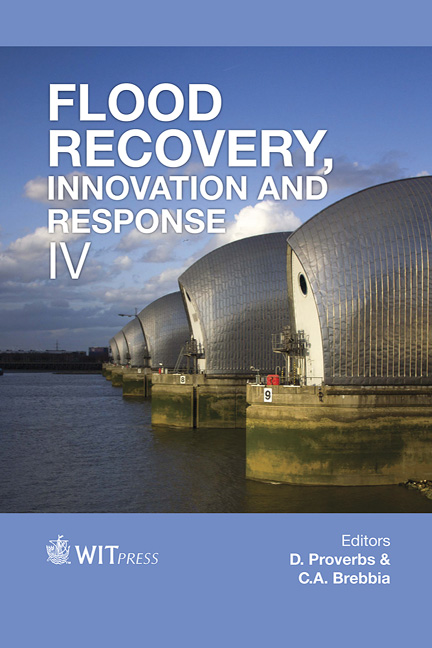A Conceptual Framework For Understanding Behaviours And Attitudes Around ‘Blue-Green’ Approaches To Flood-Risk Management
Price
Free (open access)
Transaction
Volume
184
Pages
12
Page Range
101 - 112
Published
2014
Size
296 kb
Paper DOI
10.2495/FRIAR140091
Copyright
WIT Press
Author(s)
G. Everett & J. Lamond
Abstract
This study develops a conceptual framework to inform thinking around the social research approach adopted to consider the development of ‘Blue-Green’ approaches to Flood Risk Management (BG-FRM) in UK cities. The framework informs the manner in which research is conducted and data analysed, to understand current and possible future household and business behaviours as BGFRM becomes more established, and so possibly (or not) more ‘normalised’, as well as the influences upon these behaviours that can potentially be played by key stakeholders. A conceptual map is drawn up that outlines the key players, their domains of agency and lines of influence concerning larger-scale (neighbourhood, city-level) and smaller-scale (household, business) approaches. A conceptual framework is then developed, thinking about the motivations and barriers that could encourage or inhibit adoption of blue-green approaches and the behaviour changes necessary for their sustainability, before surveying research already conducted in this area. Social Practice Theory (SPT) is suggested as a new manner of framing research to understand the ways in which behaviour may change, or fail to change, and the opportunities and barriers to any such changes. SPT, it is argued, could provide a means by which to consider present behaviours and attitudes, so that we might more effectively look for opportunities to encourage progressive behavioural developments that could increase the chances of BGFRM’s sustainability.
Keywords
Blue-Green, Flood-Risk Management, sustainable, behaviour, Social Practice Theory (SPT).





